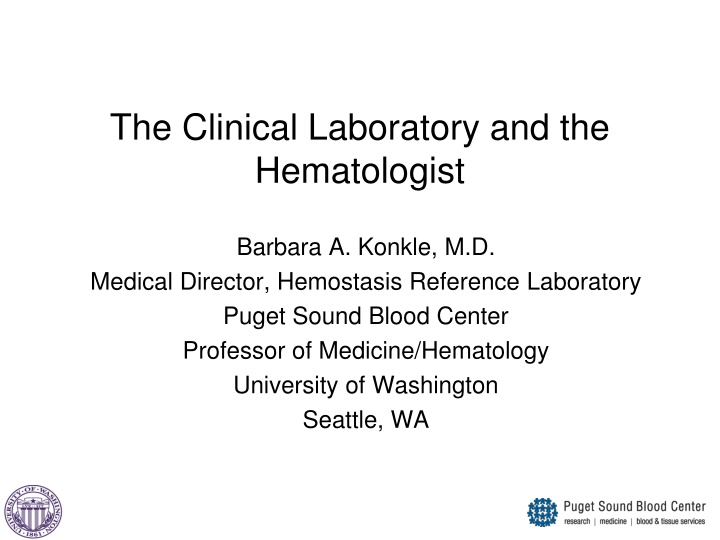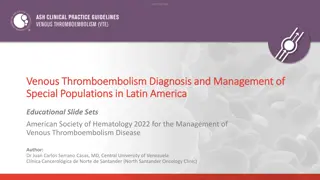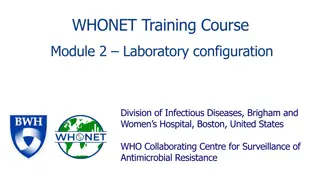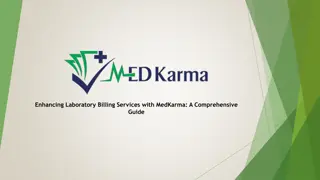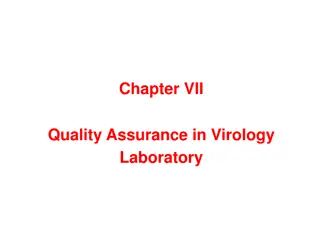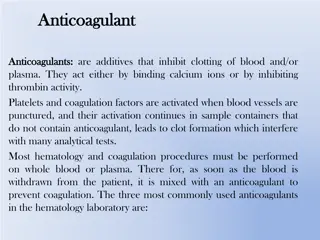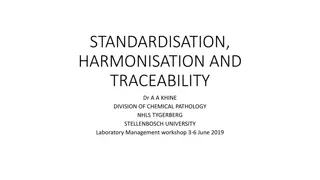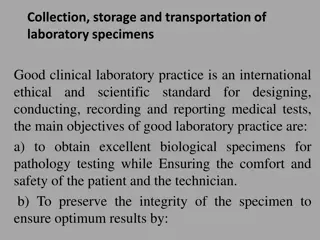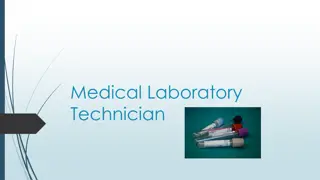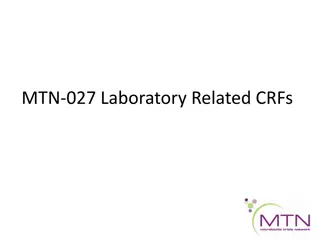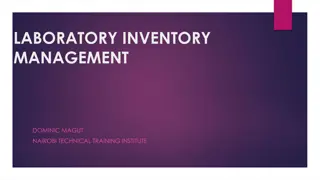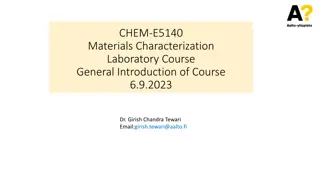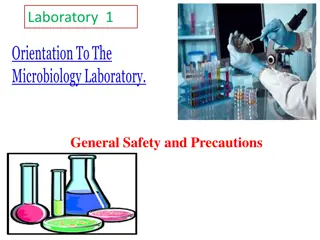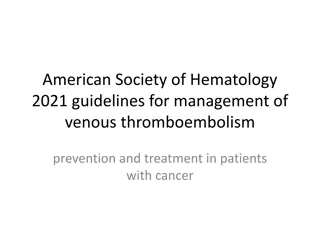Insights into Hematology Laboratory Practice
This resource explores the potential role of hematologists in laboratory settings, discussing board certification, advantages, challenges, current training trends, and core curriculum lectures in hematology. It sheds light on the critical areas of laboratory training, emphasizing the importance of understanding transfusion issues, laboratory evaluation, and interpretation.
Download Presentation

Please find below an Image/Link to download the presentation.
The content on the website is provided AS IS for your information and personal use only. It may not be sold, licensed, or shared on other websites without obtaining consent from the author.If you encounter any issues during the download, it is possible that the publisher has removed the file from their server.
You are allowed to download the files provided on this website for personal or commercial use, subject to the condition that they are used lawfully. All files are the property of their respective owners.
The content on the website is provided AS IS for your information and personal use only. It may not be sold, licensed, or shared on other websites without obtaining consent from the author.
E N D
Presentation Transcript
The Clinical Laboratory and the Hematologist Barbara A. Konkle, M.D. Medical Director, Hemostasis Reference Laboratory Puget Sound Blood Center Professor of Medicine/Hematology University of Washington Seattle, WA
Disclosures Nothing to disclose
Potential Role of Hematologist Board Certification in Hematology or Heme/Onc Direct a Hematology and/or Hemostasis Laboratory Hematology subspecialty certification requires a year of training in hematology and an ABP approved year Eligible for one year Transfusion Medicine fellowship and subsequent certification Direct services such as apheresis/stem cell collection CLIA Laboratory Director 1 year of laboratory training during fellowship or 2 years of supervisory experience in laboratory
Advantages of Lab Role Better understanding of laboratory evaluation and interpretation Better understanding of transfusion issues Salary support Avenues for clinical/translational research
Challenges in Lab Role Training Relationship to Pathology Hospital Structure
Current Training Results of Survey (26/40 responses) 26/40 responses to survey 25/26 combined heme/onc training Percent of fellows who take Heme Boards:
Laboratory Training Lab Hematology/Hematopathology Molecular Diagnostics Hemostasis Transfusion Medicine Elective 52.2% 63.2% 63.6% 48.9% Mandatory 47.8% 36.8% 36.4% 52.0% 0% 1-10% 11-25% 26-50% 51-75% 76-100% Total # Lab Heme/Hematopathology Molecular Diagnostics Hemostasis Transfusion Medicine 3 6 4 1 1 6 1 2 4 1 5 3 3 1 5 5 1 2 2 2 14 7 9 13 26 23 26 26
Lectures in Core Curriculum Lecture Topic Percent Response 88% 92% 92% 72% Peripheral Blood Smear Interpretation Bone Marrow Interpretation Hemostasis Testing Hemoglobin Analysis
Discussion Role of clinical laboratory positions for hematologists Training avenues
